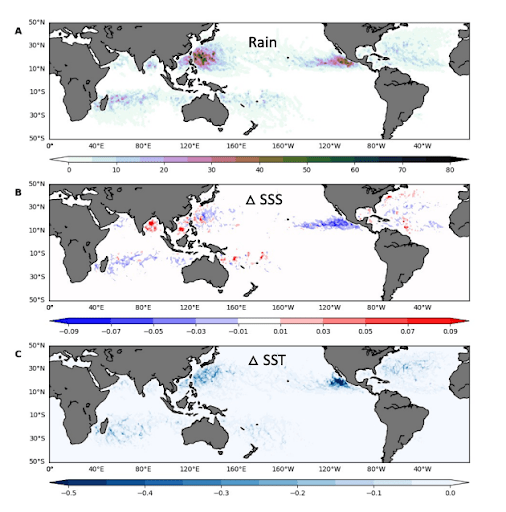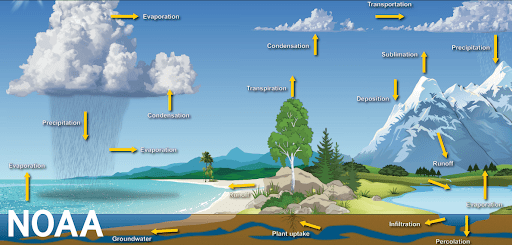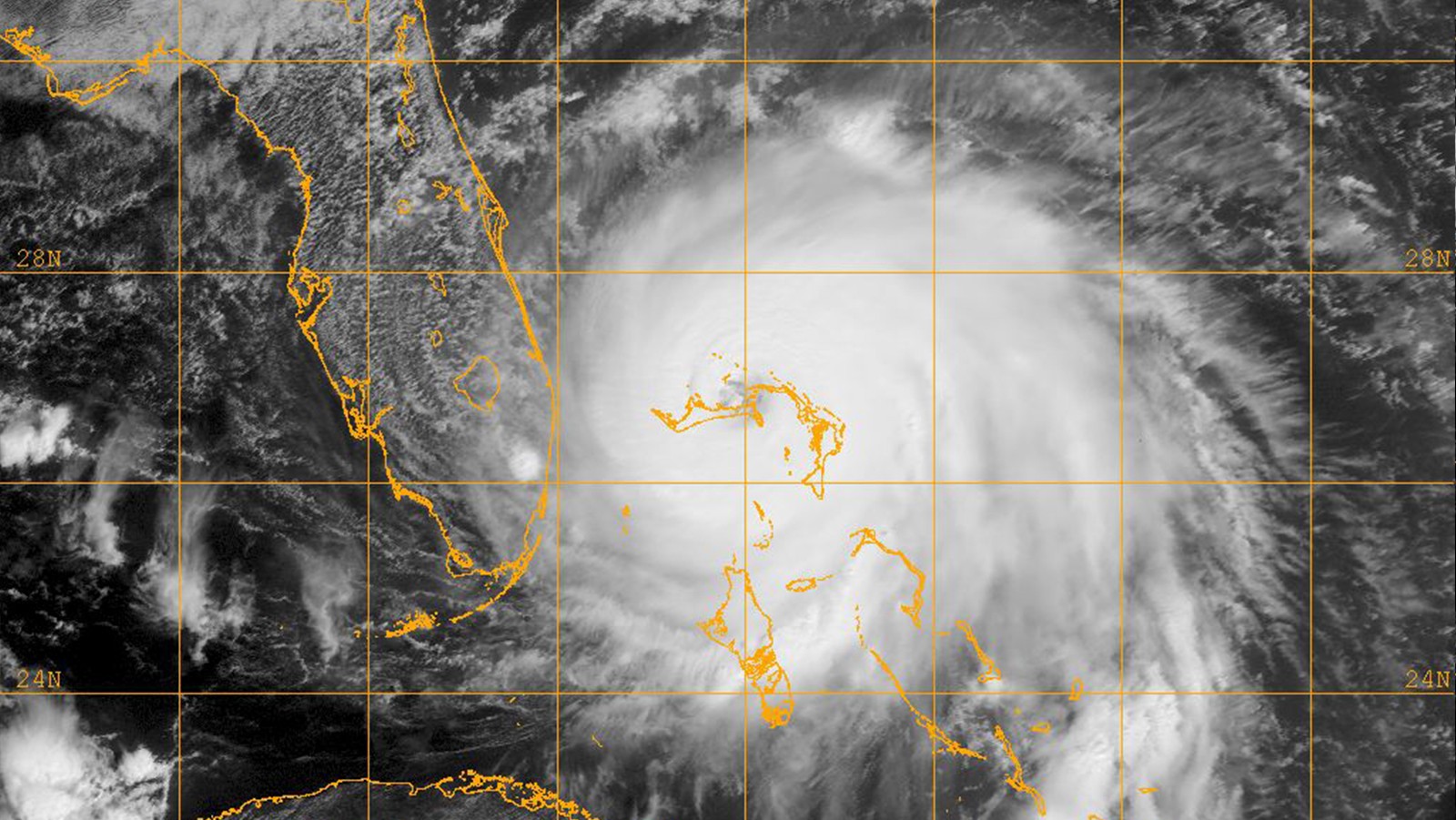Tropical cyclones intensify by extracting heat energy from the ocean surface, making the sea surface temperature under storms crucial for storm development. A recent study by researchers at the Pacific Northwest National Laboratory and NOAA’s Atlantic Oceanographic and Meteorological Laboratory found that large amounts of rain under tropical cyclones can reduce the sea surface cooling induced by them.
When the strong winds of a tropical cyclone move over the ocean, mixing and upwelling bring colder, deeper water up to the surface layer, resulting in a cooling of the sea surface temperature. This is the ocean’s primary response to a hurricane, and it acts as a negative feedback on the storm’s intensity, because the cooler the ocean is, the harder it is for the liquid water to become vapor and fuel the storm’s clouds.
Using a variety of observations, high-resolution climate model simulations, and numerical experiments with an ocean mixed layer model, scientists demonstrate that rainfall under weak tropical cyclones can significantly reduce the magnitude of cold wakes induced by them. Less sea surface cooling allows tropical cyclones to better maintain their strength and even intensify.

B) Sea surface salinity (psu) response to tropical cyclones and
C) Sea surface temperature (◦C) response to tropical cyclones.
Rainfall is based on GPCP daily data, sea surface salinity is based on 5-day mean SODA3 ocean reanalysis data and sea surface temperature is based on NOAA OI sea surface temperature daily data. The period of analysis is 2004-2015.
While the strong winds associated with tropical cyclones tend to enhance mixing in the upper-ocean, the freshwater input from rain can limit mixing. When tropical cyclones produce high amounts of rain, the added freshwater can form stratified layers in the upper ocean that limit mixing between the warm water at the surface and the cold water that lies below. This weakened mixing reduces the sea surface temperature cooling caused by the storm.
“This is the first observational study to quantify the impact of rainfall on the ocean cooling tropical cyclones produce. The results emphasize the need to properly simulate tropical cyclone rainfall in forecast models in order to generate realistic ocean cooling and its negative feedback on tropical cyclone intensity,” said Greg Foltz, an oceanographer at NOAA AOML and a coauthor on the study.
The mechanism identified in this study may play an important role in understanding tropical cyclone intensification as the planet warms. Tropical cyclone rain rates are projected to rise under global warming with an amplification of the water cycle.

The results of the study reveal that changes in upper-ocean stratification and oceanic mixing processes are primarily responsible for the reduction of tropical cyclone-induced sea surface temperature cooling due to rainfall. Since sea surface temperature cooling plays a critical role in tropical cyclone intensification, the results from this study can help improve our understanding of tropical cyclone-ocean interactions.
